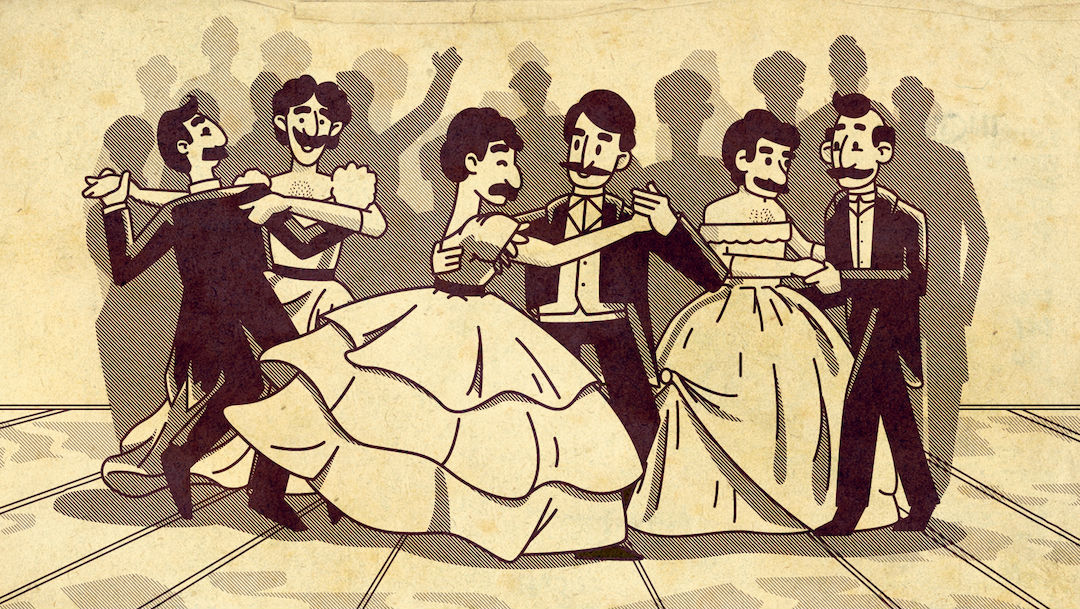When the Chinese government realized the severity of the Covid-19 outbreak in January, they locked down the city of Wuhan and its 12 million inhabitants. Soon after, everyone in the country was required to wear masks, stay at home and submit to temperature checks.
As an American living abroad in the Chinese city of Xiamen, I’ve been fascinated by how Chinese people and Americans have reacted to the same threat in vastly different ways. When schools and businesses closed throughout China, I don’t remember anyone grumbling. It wasn’t until Doctor Wenliang, who was one of the first people who sounded the alarm on the new coronavirus in December, died of the virus that many Chinese people became infuriated. But even in their anger, Chinese people generally stayed calm and followed orders.
Now, just one month into the crisis, politicians in the United States are talking about reopening the country. Across several states, people have defied stay-at-home orders and demanded that their governors reopen the economy; President Trump has tweeted his support.
In some ways, their grief is understandable. Although financial gurus suggest having three to six months of living expenses saved, most Americans don’t have anything close to that. In a recent New York Times article Eric Moutsos, a former Salt Lake City police officer said during one rally, “thank you government officials for your recommendations, but we’re going back to work.” In Los Angeles, some are defying stay-at-home orders to watch illegal street racing.
The difference between Chinese and American Covid-19 reactions is likely cultural. Chinese culture values obedience and the personal is seen as “selfish.” That probably makes quarantine with loved ones easier, from a Chinese point of view. For Americans living in a small house, quarantine can be torture.
I moved to China in the Spring of 2019 after I got a job there to teach science to five-year-olds because prospects in my hometown of Fort Wayne, Indiana were not good. I got my Masters degree in English and even went to the community college to hone my adjunct teaching skills but still had trouble finding a job. I even worked in a factory but was quickly fired. Finally, I decided to take a chance on another country, even if it meant moving across the world.
When Covid-19 hit the United States, I was glad I was in China. Americans, already worried about how they would pay rent, were hoarding hand sanitizer and toilet paper. Here, there was a brief shortage of fresh vegetables but we have plenty of toilet paper. No fistfights over hand sanitizer in Xiamen, although there were rumors that a woman in Shanghai got sentenced to 3 years in prison for hoarding it.
Even during the worst of the pandemic, not everyone in China was quarantined, especially outside of Hubei province where Wuhan is located. The rules were simple: if you visited Wuhan, you couldn’t leave. If you were returning from Wuhan, you were ordered to self-quarantine once you got home. In time, returning travelers were routed to special locations. People like me, who hadn’t traveled, could freely venture around their own cities. The only time I absolutely couldn’t leave my apartment was on a Sunday when Xiamen sprayed sanitizer throughout the city. Surprisingly, most people living in China had more freedom to move around than Americans do now.
It’s obviously easier to implement restrictions here. Part of it may be China’s traditional notions of obedience, harmony and “saving face”, even if something is terribly wrong. That contrasts with Americans who confront their neighbors for something as small as a constantly barking dog. Chinese obey their government while Americans have been taught to defy it if they can. Officials who expect capitalism to be up and running promptly don’t help either. In China, where the crisis began in January, schools are still closed. So are movie theaters, KTV, (karaoke bar) and some businesses. Four months into the crisis, people are still wearing masks and avoiding crowds.
After this crisis, we will all have our ‘before’ and ‘after.’ For me, January 23 marks that threshold just before everything changed. That day, I celebrated the coming Spring Festival with co-workers, first at a pub, later with a friend at a buffet. I sang and danced with a chef from the Philippines and my friend caught it on her smartphone. When we left the bar, the surrounding area was eerily quiet. My friend joked about a zombie apocalypse. We walked to the bus stop. We made it to my friend’s apartment, then I went home.
Things got serious fast. A friend planning to visit Xiamen canceled her trip when the train station closed in her city. Spring Festival got extended. I was excited about more time off, but when disputes about pay arose, I realized I wouldn’t get a full salary for a while.
Expect life to be lonely, frustrating, isolating and dystopian.
But four months into the crisis, I have found that it can also be empowering, transformative, inspiring, and revolutionary. Take this as a time to think about where you are and what you want to be. Do household tasks you’ve put off because you work too much or even catch up on sleep. Develop an exercise routine. Allow yourself to daydream. And relax.
Think about the change you want to see, especially the things you used to think about but never really spend real-time processing. For example, the fact affordable health care is needed for everyone. Or that a universal basic income might mean the difference for many between having a roof over their heads and being homeless during a crisis.
Before. And after. We are living in the ‘after’, no matter when you realized this virus would transform our lives. Listen to health professionals when they see trouble. They, not politicians, are the ones to be trusted when a deadly virus takes an entire world down without a single bullet fired.
Gloria Diaz is a teacher and freelance writer living in Xiamen, China who recently completed her second novel, which she describes as “Bridget Jones’s Diary meets Fifty Shades of Grey.” You can follow her blog here.
Cover Photo : New York Post/ NBC News





